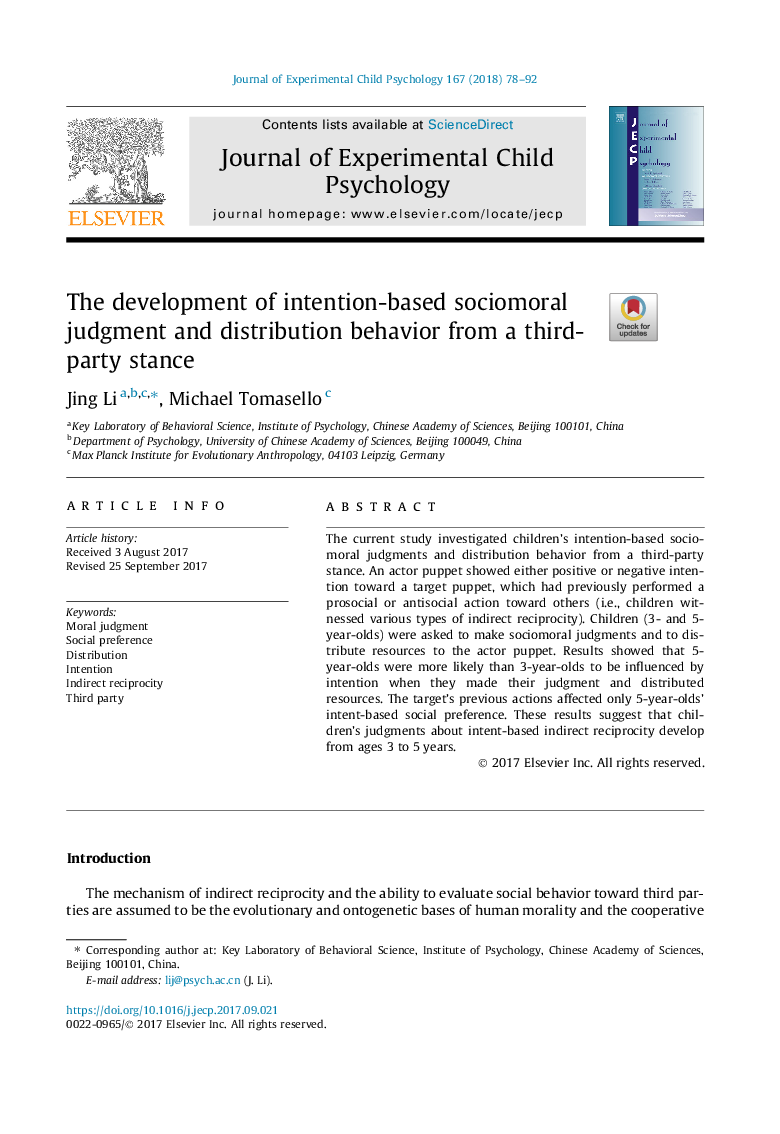| Article ID | Journal | Published Year | Pages | File Type |
|---|---|---|---|---|
| 7274081 | Journal of Experimental Child Psychology | 2018 | 15 Pages |
Abstract
The current study investigated children's intention-based sociomoral judgments and distribution behavior from a third-party stance. An actor puppet showed either positive or negative intention toward a target puppet, which had previously performed a prosocial or antisocial action toward others (i.e., children witnessed various types of indirect reciprocity). Children (3- and 5-year-olds) were asked to make sociomoral judgments and to distribute resources to the actor puppet. Results showed that 5-year-olds were more likely than 3-year-olds to be influenced by intention when they made their judgment and distributed resources. The target's previous actions affected only 5-year-olds' intent-based social preference. These results suggest that children's judgments about intent-based indirect reciprocity develop from ages 3 to 5â¯years.
Related Topics
Social Sciences and Humanities
Psychology
Developmental and Educational Psychology
Authors
Jing Li, Michael Tomasello,
